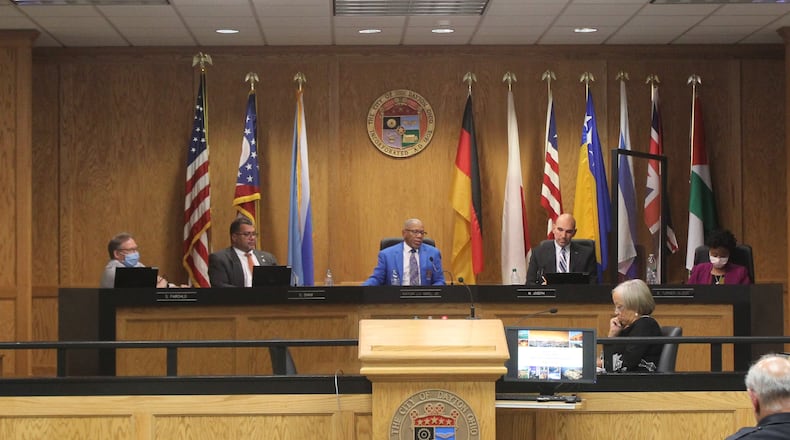Powell noted that between 2000 and 2003, there were no increases in water, sewer and wastewater rates. But beginning in 2004, the city had to raise rates — raising stormwater rates by 96% in 2004, water by 23% in 2005 and sewer rates by 14% in both 2004 and 2005. The city is trying to avoid a similar spike.
“The idea is to keep the rate increases steady, but make sure that they support the infrastructure that’s necessary to avoid large spikes,” Powell said.
Water and sewer rates have risen by a respective 5% and 7% yearly since 2020, Powell noted. The reason for the rise in rates is due mostly to increases in the cost of supplies the water department uses.
According to a survey prepared by the city of Piqua using 2022 rates, Dayton’s water and sewer rates are among the lowest in the region. The average cost of both water and sewer in Dayton in 2022 per three months was $206. Yellow Springs had the highest combined sewer and water cost of 65 districts in the region at $585 in the same three-month period.
Commissioner Darryl Fairchild asked Powell if a program could be set up in the water department for another revenue stream to subsidize residents who have a hard time paying water bills, especially given the increases in cost. Powell said the office was still figuring out how to make such a program work.
For those Dayton residents who currently need help with paying their water bill, payment plans are available, as is assistance though agencies like St. Vincent de Paul, Community Action Partnership (866-504-7379), Montgomery County Job and Family Services (937-496-6720), United Way of Montgomery County (937-225-3000) and Montgomery County Veteran’s Services (937-225-4801).
City commission budget fallout
On the heels of city commission approving a budget on Saturday, commissioners said Wednesday that they need to consider ways to improve working together, with Fairchild echoing a call for a session with a mediator.
“The call for professional mediation is probably appropriate,” Fairchild said. “We don’t have trust and we don’t communicate well.”
Commissioner Shenise Turner-Sloss said that while she voted for the budget last week, she is still concerned about the disparities in the city.
Turner-Sloss and Fairchild said last Wednesday their budget priorities were not properly addressed or included in the city’s spending plan and they would abstain from voting for the 2023 budget. The two members reiterated these concerns Saturday, the day the budget was unanimously approved.
Their issues with the plan concerned fire department staffing and neighborhood blight improvements, along with lack of community input into the budget planning process and little youth development funding.
Mayor Jeff Mims also responded to the two commissioners.
“I think about how much we can do when there’s more trust, more unity, more clarity around how we communicate our vision and our governments,” Mims said.
Commissioner Matt Joseph did not make any additional remarks and member Chris Shaw was not present.
Reporters Cornelius Frolik and Aimee Hancock contributed to this report.
About the Author

